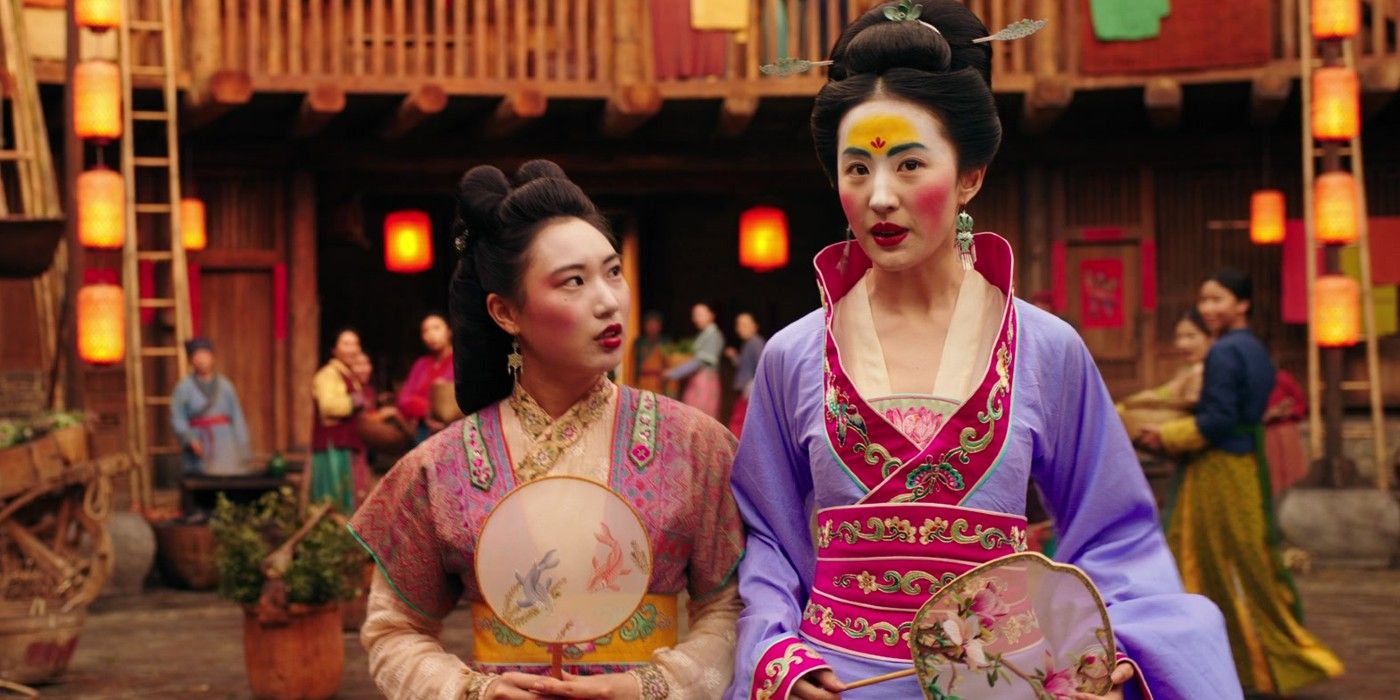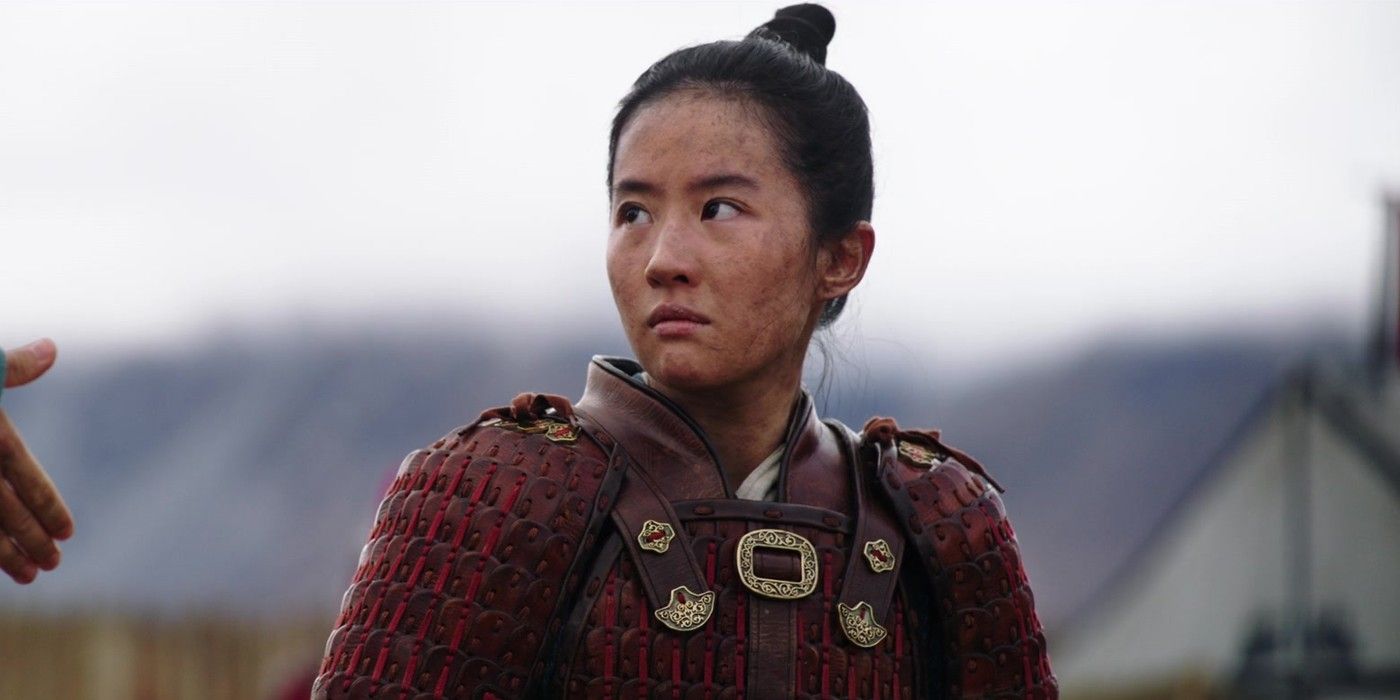Christine McCarthy, Disney's CFO, made a statement that filming parts of the live-action remake of Mulan in China has caused a lot of issues for the company. The 1998 animated movie is a classic, but Disney has been struggling with the live-action film for several reasons. It was initially scheduled for theatrical release in March 2020 and was postponed due to the coronavirus pandemic. Disney then moved Mulan to a September 2020 release date, with the option to buy the film on Disney+ for a premium fee. The movie premiered on both the streaming service and in theaters—but the box office results in China are proving a disappointment so far.
Furthermore, dedicated fans who watched the entirety of the credits noticed something a little alarming. In the sequence, Disney offers a special thanks to several groups of Xinjiang government officials. Problematically, this area of China holds large internment camps where Uyghur Muslims are being detained. Upset viewers belive that by thanking government groups from the region, Disney is indirectly supporting this cultural genocide. This issue (along with claims that Mulan is whitewashed) has brought about a movement to boycott the remake.
Responding to this onslaught of criticism, McCarthy spoke at the Bank of America Virtual 2020 Media, Communications & Entertainment Conference. According to Deadline, McCarthy reiterated that much of Mulan was filmed in New Zealand. The CFO added that the producers wanted to be truthful to China's scenery, and for that filming, they had to have permission from the government. Read McCarthy's full statement below.
"I’m not a box-office prognosticator, but it has generated a lot of publicity. Let me just put something into context. The real facts are that Mulan was primarily shot — almost in entirety — in New Zealand. In an effort to accurately depict some of the unique landscape and geography of the country of China for this period drama, we filmed scenery in 20 different locations in China. It’s common knowledge that, in order to film in China, you have to be granted permission. That permission comes from the central government. So, in our credits, it recognized both China and locations in New Zealand. I would just leave it at that, but it has generated a lot of issues for us."
McCarthy also added that Disney decided to release Mulan on Disney+ as an option for fans who are not yet ready to return to theaters. This choice appears to have paid off for the company; on its opening weekend, the film made $33.5 million for the streaming service. Box offices and reviews both tell a different story, though, and the results are not looking quite as good. So far, critics have been leaving just lukewarm reviews of the film itself.
Overall, it seems as though McCarthy is trying to avoid any connection with the internment camps in the Xinjiang area. By stating that the majority of production took place in New Zealand, she's further distancing Disney from the scene in China. However, this circles back to the allegations of whitewashing as it demonstrates the fact that although Disney used a Chinese cast, the film was still very white behind the scenes. These various claims of stereotyping, coupled with the entanglement with human rights violations, are giving the live-action Mulan some very shaky ground to stand on.
Source: Deadline


